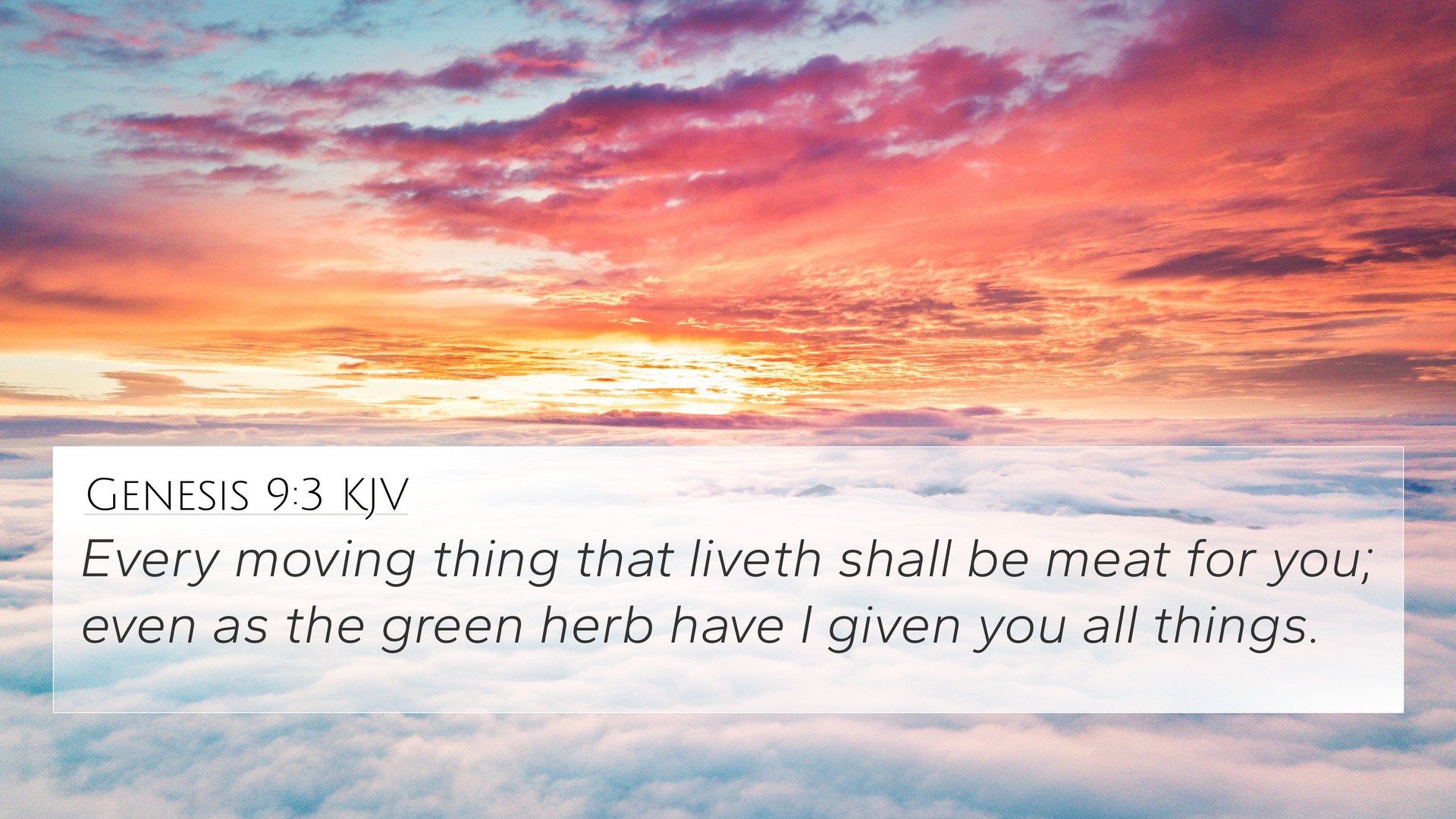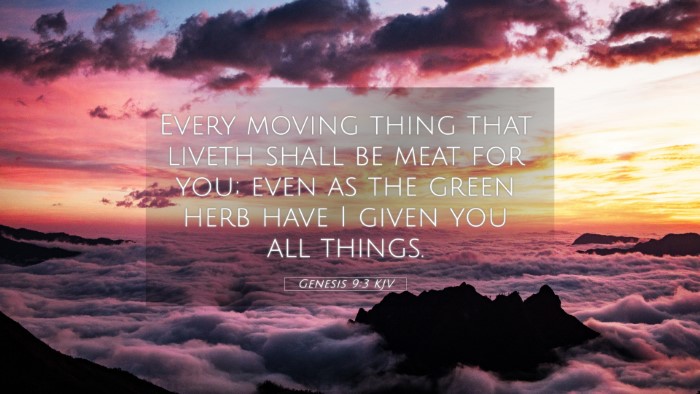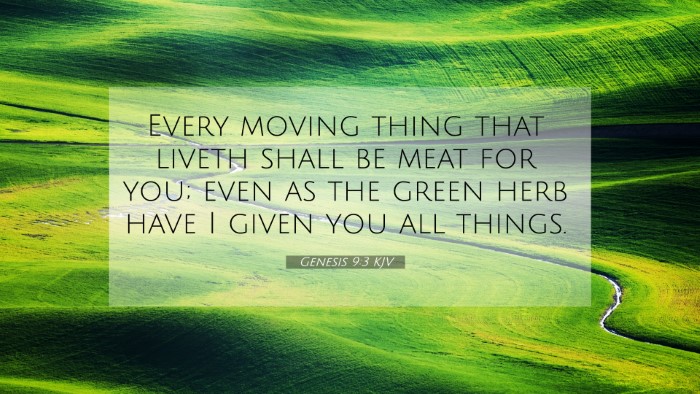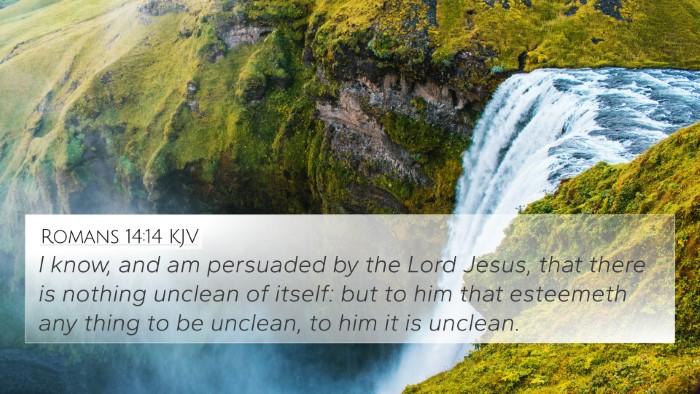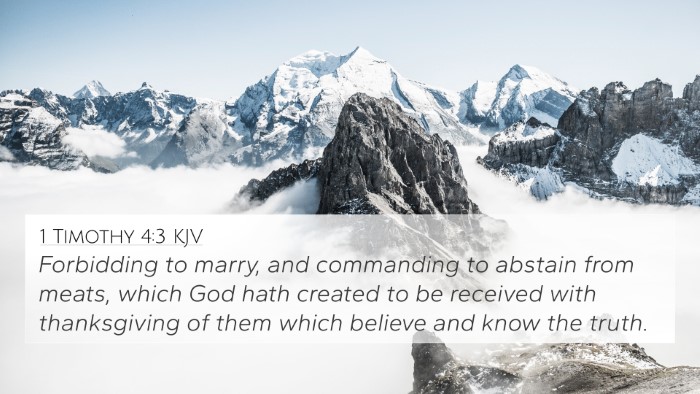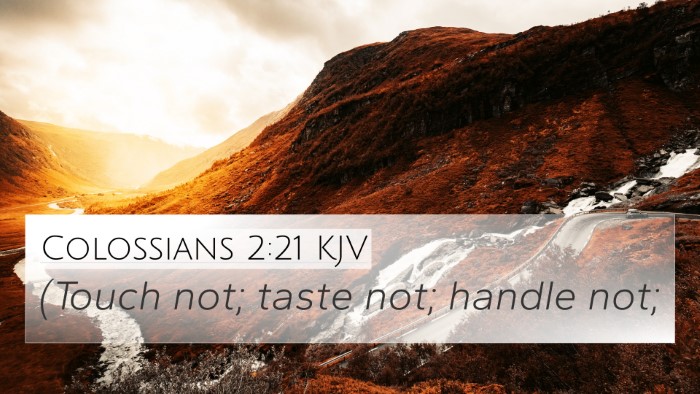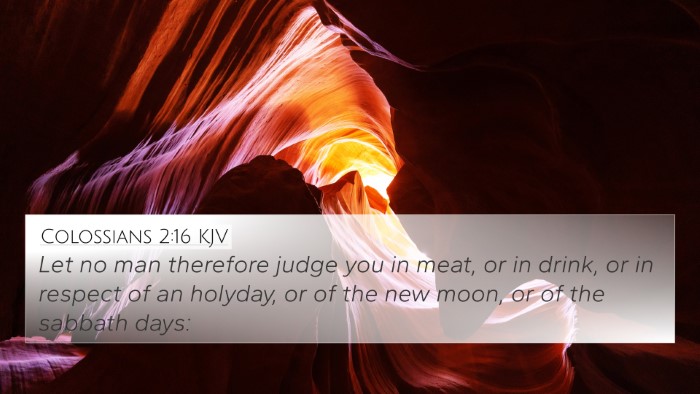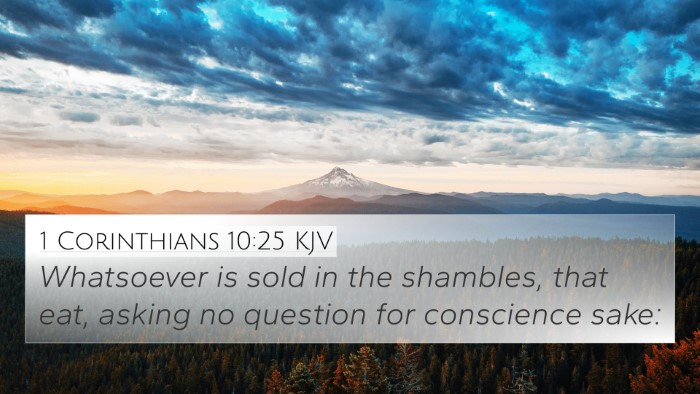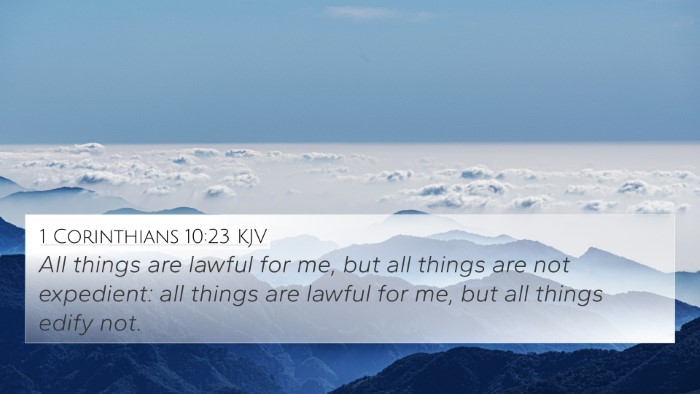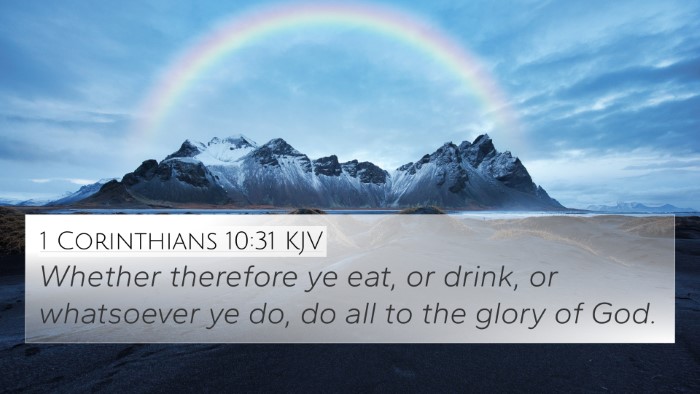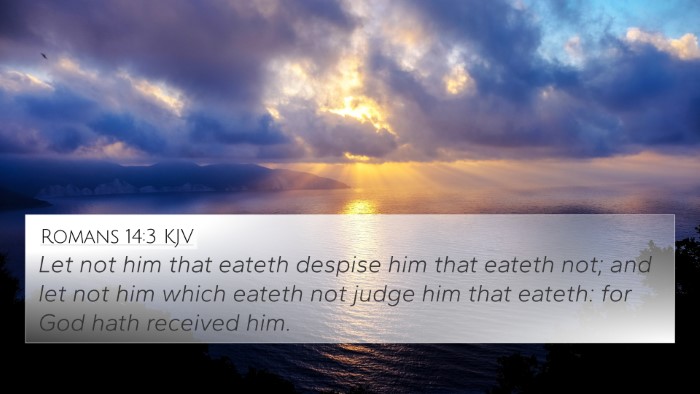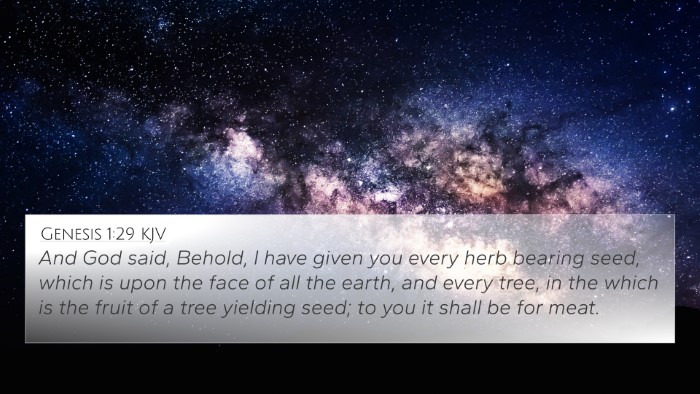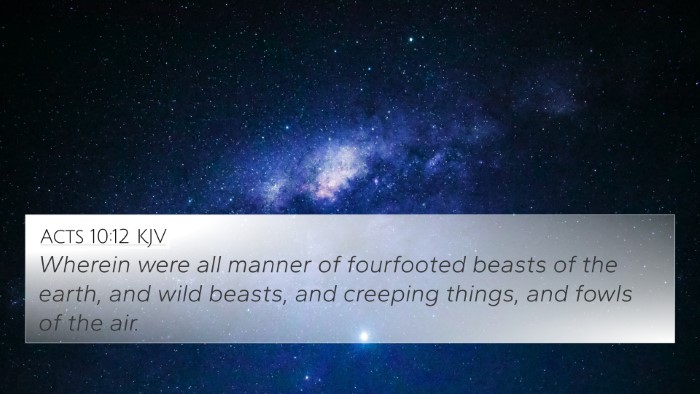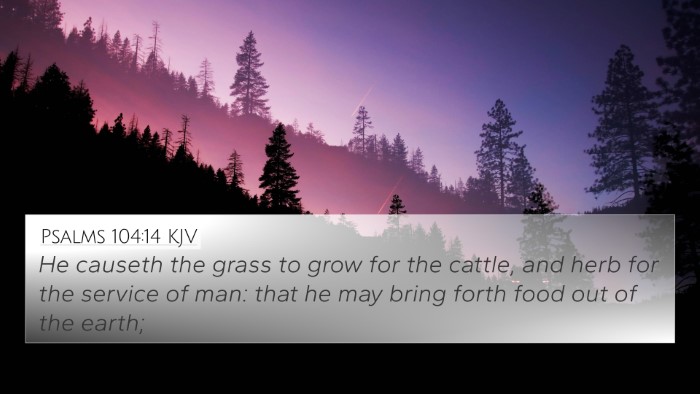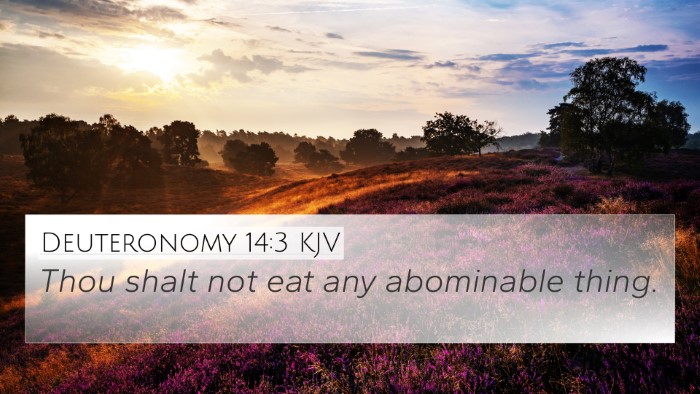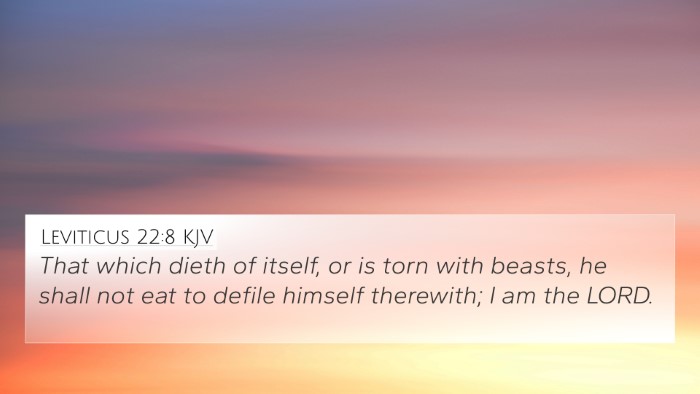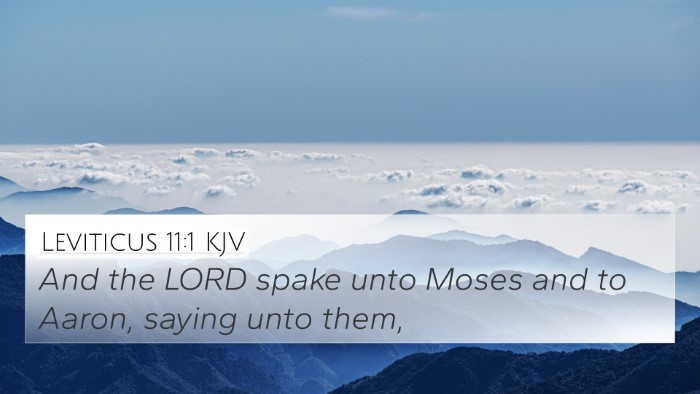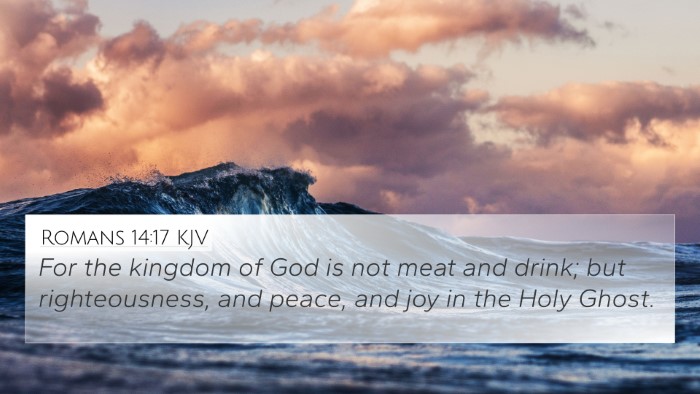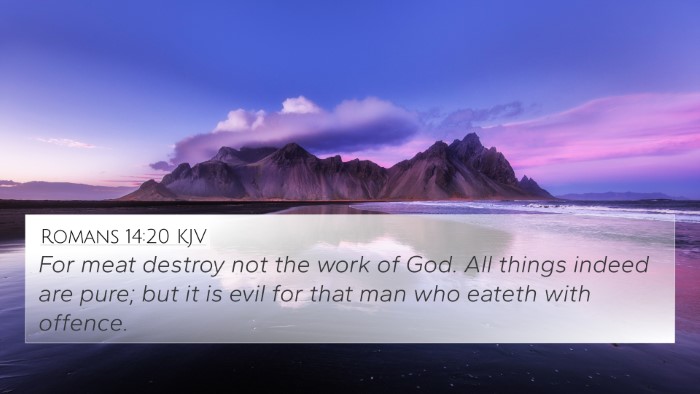Understanding Genesis 9:3
Genesis 9:3: "Every moving thing that lives shall be food for you; even as the green herb have I given you all things." This verse is significant within the context of the post-flood narrative, indicating a shift in the dietary practices of humanity, allowing for the consumption of meat.
Contextual Overview
Post-flood, God establishes a new order after judgment, showing mercy by preserving Noah and his family. This verse comes after the covenant God makes with Noah, emphasizing both His provision and the responsibilities that come with it.
Commentary Insights
Matthew Henry's Commentary
Henry emphasizes that this permission to eat meat comes after a significant moment of judgment. God grants humanity a broader range of food, signaling a new beginning. Yet, there’s also an underlying caution regarding the sanctity of life, as seen in the subsequent verses where God warns against consuming blood.
Albert Barnes' Notes
Barnes provides insight into the word "moving thing," which he interprets as all living creatures. This opens up the culinary landscape significantly compared to the previous vegetarian diet established in Eden. He notes the transition reflects God’s bounty and the new relationship between humanity and the animal kingdom.
Adam Clarke's Commentary
Clarke suggests that this permission is not merely for sustenance, but it reflects God's ongoing providence. He warns that while humanity has more freedom in what to consume, it comes with the obligation to honor God through stewardship and respect for His creations.
Thematic Connections
This verse illustrates several key themes within the Bible, including:
- Divine Provision: God's care in providing for human needs.
- Stewardship of Creation: Responsibility towards animals as sentient beings created by God.
- The Shift of Dietary Laws: Precepts that evolve with covenant changes.
Bible Verse Cross-References
Genesis 9:3 can be cross-referenced with several other verses that enhance its meaning and context:
- Genesis 1:29: The original diet of humanity (herbal).
- Leviticus 11: The dietary laws that follow for the Israelites.
- Acts 10:13-15: Peter’s vision about clean and unclean animals reiterates the broader understanding of food.
- Romans 14:2: Paul discusses dietary choices among believers, showing a continuity in thought.
- 1 Timothy 4:3-5: Acknowledgment that all things are sanctified by God’s word.
- Proverbs 12:10: Compassion towards animals reflects righteous living.
- Hebrews 7:12: Discussing changes in the law parallels the dietary discussions initiated here.
Conclusion: An Inter-Biblical Reflection
Genesis 9:3 serves as a foundation for understanding the shifts in God’s expectations and relationship with humanity after the Flood. This verse not only provides insight into dietary allowances but also reflects broader theological themes such as divine provision, stewardship, and moral responsibilities towards creation. As we utilize tools for Bible cross-referencing and explore thematic Bible verse connections, Genesis 9:3 offers a rich ground for understanding God’s ongoing covenant with humanity.
